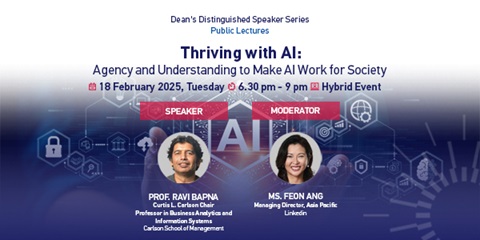Sense of belonging at work: Why it isn’t just a ‘nice to have’
By: MEGAN WEE
Publication: ST 14/06/2025
SINGAPORE - Fitting in at work is important, but if it means losing yourself, some people decide it is better to just walk away.
Ashley (not her real name), 28, is one example. Having lived abroad for years before returning to Singapore for her traineeship at a law firm, she learnt that her outspoken, inquisitive nature was not always appreciated.
Once, after attending a networking event, her supervisor told her she “shouldn’t be doing stuff like that”.
When she asked, “Like what?”, he replied that it was inappropriate for her to speak so confidently to more senior people in front of everyone.
She also recalled another occasion when an associate told her to help with a task, and she asked what it was for.
During a performance review later, she learnt that her question was seen as defiance because, as she put it: “I asked why when I should have just done the work.”
While she learnt to keep her opinions to herself later, she still stood out for being mixed-race.
“My accent is different, and I have tattoos... it is not the easiest to fly under the radar,” she said.
When some office staff started referring to her as the “ang moh girl”, she felt the need to work harder to overcome the stereotype that non-Asians lack a strong work ethic. After six months, she chose to leave this firm where she never felt she belonged.
Her experience is not unique.
According to a Randstad 2025 Workmonitor survey published in March, 62 per cent of respondents in Singapore said they would leave their jobs if they did not feel a sense of belonging at work.
This was more pronounced among Gen Z workers, with 67 per cent stating they would consider resigning.
In this survey of 750 Singapore workers, the recruitment agency also found that 21 per cent of respondents had quit a job because they did not have any friends at work. For Gen Z and millennial workers, the percentage was higher at 25 per cent.
The takeaway is, Randstad said, if companies want to have more engaged employees and higher productivity, they have to foster a positive workplace community.
Dr Ruchi Sinha, organisational psychologist and associate professor at Nanyang Technological University’s Nanyang Business School, said workplace belonging is shaped by several factors.
Ideally, there should be inclusive leadership, psychological safety, sufficient room for authentic self-expression, good team structure and common purpose, among others.
In Ashley’s case, Dr Sinha said she was a victim of social exclusion and incivility, which made it hard for her to feel psychologically safe at work.
“Given the power distance in Singapore, speaking up, being outgoing and extroverted may be seen as disrespectful and undermining by those in authority, who are used to most people choosing to keep quiet,” she said.
In another case, Riley (not her real name), 24, left her public relations job after feeling like she was “constantly walking on eggshells”.
During her probation review, her supervisor pointed out that she did not engage in small talk or share personal stories with the team.
She was also asked whether she got along well with friends outside of work, and if she remained on good terms with her former colleagues.
“I felt these questions crossed a personal line,” Riley said.
Dr Sinha said Riley’s sense of anxiety was due to poor communication from the leaders, her lack of psychological safety, and the pressure to conform to office norms that felt alien to her.
“To me, all these cases point to a need to fit in and conform – not to the professional standards at work, but to social ways of talking, walking, doing and being,” Dr Sinha said.
“Evaluating employees on their after-hours socialising and not their job-relevant skills and behaviours invites bias, undermines trust and inclusion, and blurs the vital boundary between private life and professional performance,” she added.
Conversely, feeling a strong sense of belonging at work can greatly enhance job satisfaction.
Mr Matthew Tan, a 26-year-old communications executive in an agency, said he is happy where he is.
“I enjoy working with colleagues who come with many years of experience,” he said.
“They are professional, knowledgeable in their field, and, more importantly, very willing to teach and guide junior staff like me.”
He added that his team knows when to be serious and when to have fun. After getting their work done, they sometimes have meals and participate in staff activities together, so there is a strong sense of camaraderie.
He is also thankful that his “work friends” always respect each other’s personal boundaries and know where to draw the line.
Ms Yan Jiejun, Edelman’s Asia-Pacific workplace advisory lead, said having positive relationships at work is important as this has an enormous influence on individuals’ well-being – even after they have stepped out of the office.
She also emphasised the importance of helping employees feel valued and respected.
This can be achieved by encouraging them to share their views, and giving them recognition and heartfelt appreciation for good work done.
For Mr Wayne Lim, he went through a few stints in the private sector before finding his true calling in public service.
The 50-year-old, who previously worked in a bank and a retail company, now works for the Cyber Security Agency of Singapore.
He said his work has a wider impact now, and he feels a greater sense of achievement when he is able to deliver projects that benefit many members of the public, rather than just one private enterprise.
Mr Lim also prefers the clear progression structure, well-defined career path and training opportunities in public service.
Most of all, he feels a stronger sense of belonging, as he is working alongside like-minded colleagues.
“For people who join the public service, they are motivated by the desire to serve the nation,” he said, adding that it is easier for a team to bond over a common purpose.
• Dr Ruchi Sinha is an associate professor at Nanyang Business School, Nanyang Technological University.
Source: The Straits Times



.tmb-listing.jpg?Culture=en&sfvrsn=8b2cb369_1)


